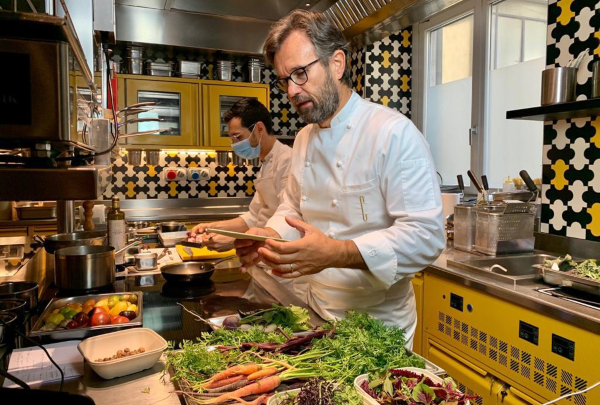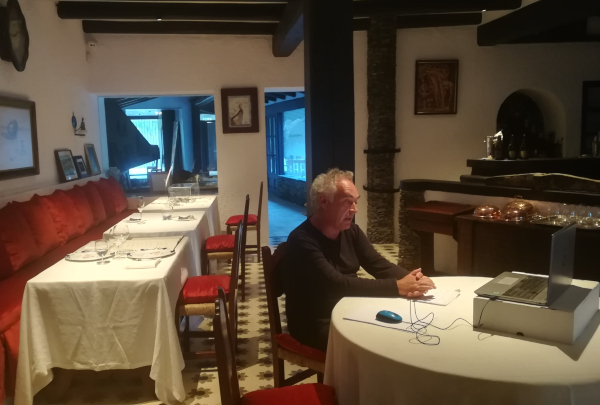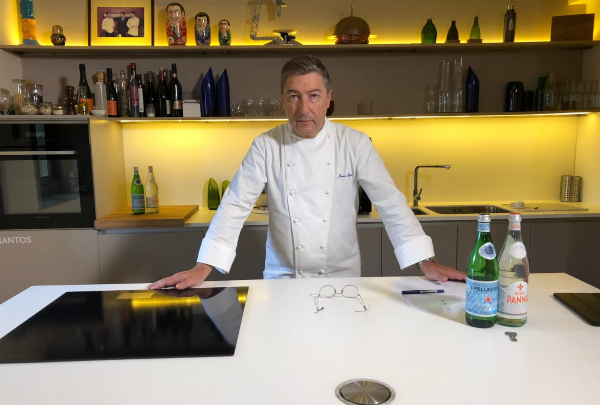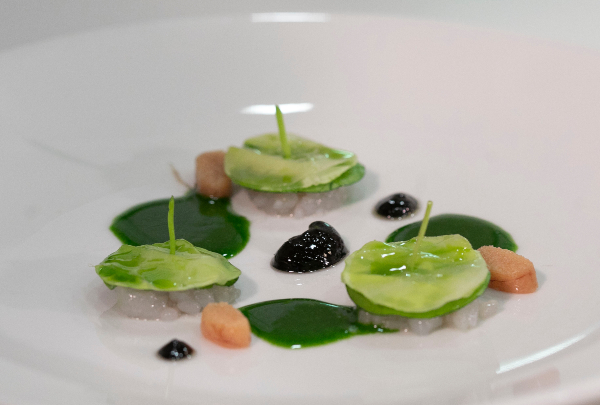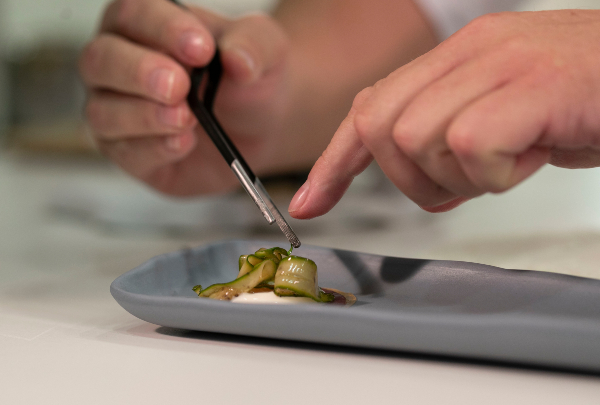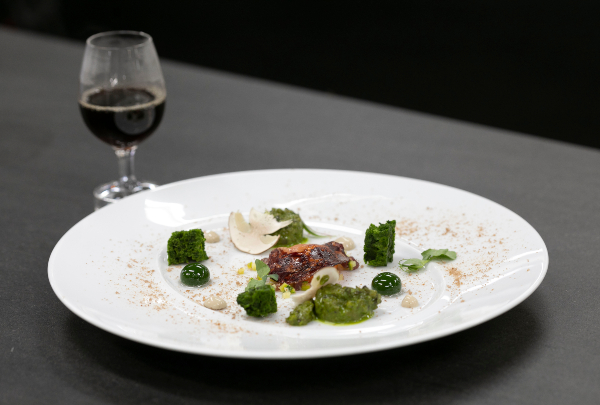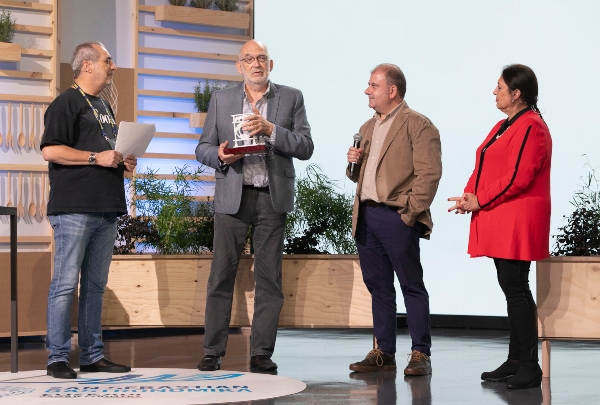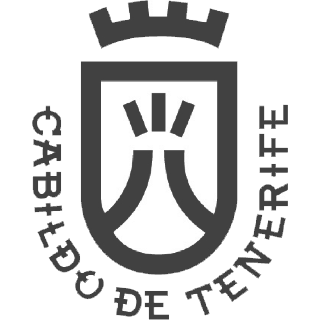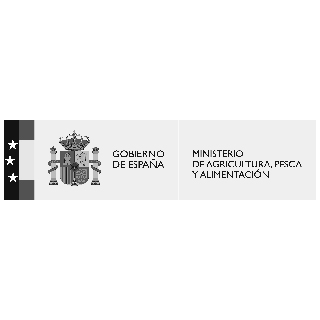News
Third day. Gastronomika opens its doors from Euskadi to Africa

The congress sneaked into the insides of Azurmendi, pairing Alija with Arzak and advocating for cuisine with black roots.
Opening doors, ventilating ideas, exploring paths. This is the goal of this historic edition of the San Sebastián Gastronomika Euskadi Basque Country, which decided to tear down the physical, mental and even generational barriers between chefs yesterday.
The congress sneaked into Azurmendi’s kitchen during its service and crept into Arzak’s creativity laboratory to witness an emotional meeting between Juan Mari, Elena and Josean Alija, and managed to reach Africa, Colombia and Harlem to learn about the leaders of a culinary movement that are claiming their black roots.
The need of having to hold an online event -broadcast online to 55 countries- has created moments that would be difficult to experience in an auditorium. Such as almost 20,000 attendees sneaking into one of the world’s most famous restaurants. Eneko Atxa allowed the cameras of Gastronomika to enter into the very heart of his restaurant, enabling us to observe the calm and harmony with which the team of over 30 people work, or meeting the professionals who work behind the scenes that have much to do with Azurmendi’s success, such as the head chef Pilar Lojero. “She has been with us for eleven years and generates a essential calm, orderly and clean atmosphere”, commended the chef.
The visit enabled us to revise orders, analyse the structure of a tasting menu of 25 dishes that strives to be light or see how they prepare some of their most representative dishes live. An example of timing, skill and coordination, almost like choreography, in which there is always something happening, but where “the timing must always be set by the customer”, points out Atxa.
Another memorable moment rendered by the great Arzak family, who received Josean Martínez Alija into their restaurant. The chef from Bilbao recalls how he spent all his childhood savings to dine in the country’s longest-lasting three-star restaurant, which lit the flame in him to become a chef. He presented, as a tribute to Juan Mari, a revision of the legendary scorpion fish cake, and the patriarch of the Nouvelle Basque Cuisine made a star appearance to give it his blessing.
Neither he nor his daughter Elena missed a second of a presentation in which the chef of the Nerua demonstrated a cuisine which was minimalist in appearance and deeply rooted emotions with dishes inspired by the gesture of wiping baby squid sauce off a dish with bread or the flavour of the ‘felipadas’, a humble sandwich made of lettuce and anchovies served at the Alameda bar in Bilbao.
Elena Arzak showed her commitment for a “calmer, less show-like” cuisine than her father’s with recipes that link to the tradition of her centenary restaurant, such as the Landes pigeon cooked in “cocotte” or the grouper with a ‘leather’ of mushrooms. She was assisted in the presentation, broadcast from the Arzak laboratory, by Jon, the son of Xavier Gutierrez, who has been in charge of the restaurant’s research for the last few decades.
From Africa to Harlem
From the Basque tradition of passing things on from parents to children to a generation of chefs who have set themselves the task of revaluing the cuisine of their African ancestors. The Ghanaian chef Selassie Atarika not only makes use of her country’s traditional ingredients to make haute cuisine dishes but draws inspiration from the cultural practices, religious taboos, ancient methods of conservation or a sense of sustainability only known to nomadic peoples. “If we want African gastronomy to survive, we have to be aware of the global injustices we are living in”, she noted. The same commitment shown by the Senegalese chef Pierre Thiam, who collaborates with the smallholder farmers from the Sahel to commercialize their millets, an ancient cereal with enormous nutritional properties.
In the afternoon the congress crossed the Atlantic to taste the black root cuisines from such diverse places as the Colombian Pacific or the New York neighbourhood of Harlem. J. J. Johnson invited us from the Big Apple to change the way we cook rice, meanwhile unique Maura de Caldas – the eldest chef ever to present at Gastronomika- offered a lesson in traditional cuisine while she sang to the food. Her voice managed to tear down the supposed formality of a professional congress, giving us another memorable moment in this Gastronomika 2020 capable of touching everyone via a screen.
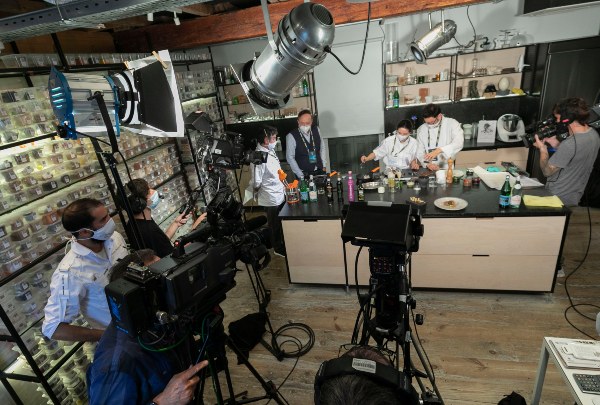
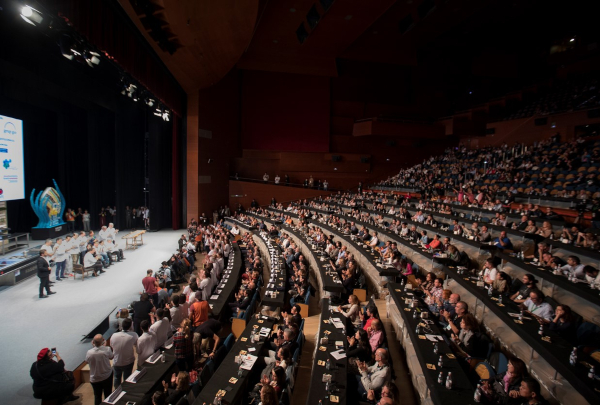
.jpg)
